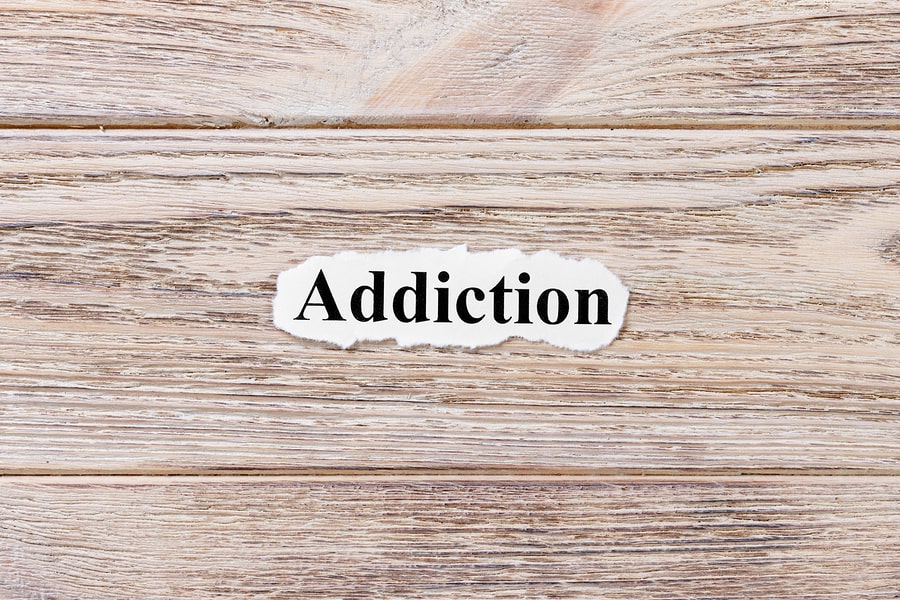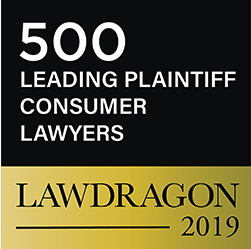Long-Term Disability Attorneys Helping Those Disabled by Addiction

Years ago, the heroin overdose of a Silicon Valley Google executive shed light on the prevalence of substance abuse and addiction in the tech industry. It’s no longer a surprise that illegal drug use and prescription drug abuse is a problem for many Americans. More than 63,000 persons die of drug overdoses in America each year, and these numbers don’t include people who suffer from traumatic brain injuries or contract life-threatening diseases resulting from drug abuse.
This staggering number also doesn’t include people who can’t perform the important duties of their occupations because addiction controls their daily lives. Many people don’t know that addiction itself is a disease and that your individual or group long-term disability insurance may cover a portion of your income while you seek treatment. Don’t become a statistic when you claim individual or group long-term disability benefits during substance abuse treatment, because you need time to recover with peace of mind and your benefits.
The top-rated long-term disability attorneys and award-winning group ERISA lawyers at DarrasLaw have more than 100 years of combined litigation and claim experience fighting for wrongfully delayed, denied, and terminated long-term disability insurance benefits.
We know your legal rights under state and federal ERISA disability laws, and our experienced long-term disability lawyers and litigation savvy national group ERISA attorneys can help you claim your individual or group long-term disability benefits. You focus on your treatment, and we’ll handle your individual or group long-term disability insurance company. Call the stellar long-term disability attorneys and seasoned group ERISA lawyers at DarrasLaw today at 800-898-7299 or contact us online if your individual or group long-term disability insurer wrongfully denied your valid claim.
The Difference Between Substance Abuse, Addiction, and Illegal Drug Use
Americans struggling with drug or alcohol addiction don’t become addicts overnight. Substance abuse typically involves the misuse of a legal substance. People often abuse alcohol and prescription drugs because they’re legally obtainable.
Addiction often begins with a car accident or back injury for which you need prescription medication. It continues with substance misuse, leading to tolerance, dependence, and ultimately an addiction disorder.
Your treating doctor may prescribe you oxycodone after a car accident with instructions to take no more than two pills orally twice a day. Strong opioid drugs like oxycodone stimulate tolerance in certain people, who will continually need higher-dose pain medication to relieve their symptoms. Soon, you find that two pills don’t have the desired effect or manage your pain.
You may begin taking six pills a day, taking your doses closer together, or taking the medication itself in a different manner than prescribed. You may find your medication more potent if you dissolve it in water or crush and snort it, but this is not how manufacturers intended that patients use it.
Opioid addiction is a gateway to heroin use, as heroin itself is a strong opioid and counter-intuitively, often easier and less expensive to acquire.
Illegal substances, such as heroin, cocaine, and methamphetamines, do not have legal uses. You cannot obtain them legally, and, as such, their use is unregulated. You may have sustained an injury or illness because you took an illegal substance laced with toxic substances. It’s frequently easier to overdose on illegal substances because of their potency and the way people ingest them. It only takes one potent overdose of an illegal substance to become a fatality.
Addiction itself is a chronic disease. It’s defined as a compulsive and difficult to control behavior that persists despite experiencing the negative consequences of the substance use. Many people associate addiction with drug and alcohol abuse, but virtually anything can cause addiction, including:
- Tobacco – Nicotine, a substance in tobacco, keeps users needing and wanting more. Withdrawal from smoking isn’t normally debilitating, but it can cause extreme anxiety and discomfort. Many smokers use tobacco and related substances, such as vaporized nicotine, to relax, but they’re doing more damage than good. Half a million Americans die of smoking-related disorders each year and 16 million Americans are living with serious health conditions caused by smoking.
- Alcohol – Alcohol abuse causes more than inebriation and liver damage. Driving while intoxicated often results in life-threatening injuries that most long-term disability insurers won’t cover. Alcohol is easily accessible, unlike illegal or prescription drugs. It takes time and support to break free of an alcohol addiction.
- Heroin and cocaine – These powerful illegal substances are highly addictive because they rapidly increase dopamine in the brain. This results in an immediate feeling of peace and happiness. The substances are both addictive and difficult to stop using. Most patients need intensive inpatient treatment and medical assistance during detoxification to ensure long-term success.
- Cannabis – Marijuana also can cause dependence, including marijuana use disorder. However, it rarely causes addiction.
- Prescription drugs – The opioid crisis affects nearly half a million Americans each year. Patients who abuse prescription drugs may develop tolerance, dependence, and then addiction issues, including disability. Withdrawal from prescription opioids is especially difficult because it may mean the symptomatic return of the original injury or illness. You may claim individual or group long-term disability benefits for an underlying condition while also treating your substance abuse and addiction.
- Gambling – You can also try to claim disability benefits for a gambling addiction. However, you may need inpatient treatment for an underlying mental health condition that causes compulsive gambling. You can claim individual or group long-term disability benefits for mental health disorders such as obsessive-compulsive disorder that manifest in addictions to gambling, or even sexual addiction.
- Addictions related to food – Overeating, anorexia, and bulimia can all turn into food-based addictions. Compulsive calorie awareness, obsessive body measurement, and excess eating may rise to the level of addiction. You can die if you take in too little or too many calories, or from the damage to your stomach bulimia can cause, and you will need extensive treatment for these disorders. Most individual or group long-term disability insurers provide extremely limited benefits for eating disorders.
You may qualify for individual or group long-term disability benefits to treat any addiction that prevents you from performing the important duties of your occupation. Even video game and internet addictions are a disease. The best way to determine whether you can claim individual or group long-term disability benefits is to speak to an experienced long-term disability attorney or skilled national group ERISA lawyer at DarrasLaw about your situation.
The Science of Addiction
Many stereotypes persist about addicts and their “choice” to continue using drugs, in part because of the seeming availability of treatment programs. It’s also true that many drug addicts made a choice to start using and abusing illegal drugs.
An addiction, however, causes physical and psychological changes to your body and brain chemistry that can affect your ability to make rational decisions. Withdrawal symptoms are a sign that the abused substance has changed your body. These symptoms can range from a craving to vomiting and seizures.
Common symptoms experienced when addicts enter withdrawal include:
- Anxiety
- Nausea and vomiting
- Insomnia and restlessness
- Excessive sweating
- Headaches
- Seizures
- Hallucinations
- Shaking and tremors
- Flu-like symptoms
- Depression
Drugs are designed to encourage your brain to release chemicals that produce a euphoric effect. These drugs hit a reward center in your brain, which encourages the learned behavior of drug use. This reward center is actually designed to teach and train you to continue healthy behaviors by releasing dopamine, which makes you feel happy.
Drugs and other activities hijack this process. You’re physically motivated to continue engaging in rewarding behaviors even if the reward is only temporary and ultimately destructive. The surges you get in your brain’s reward center when you take a drug encourages further abuse and deeper addiction.
You may experience cravings even after completing rehabilitation because drug abuse can permanently change your brain chemistry. This is why relapse is so prevalent and difficult.
Take advantage of your individual or group long-term disability benefits while you’re treating an addiction so you can enter a long-term rehabilitation program. Unfortunately rapid detox patients seldom have long-term success. You will need to retrain your brain to stop craving the substance, which can mean long-term intensive and focused medical intervention. Certain non-addictive opioids can help reduce the severity of your withdrawal, and multi-step programs with lifetime follow-up are frequently vital to long-term success.
Individual and group long-term disability insurance companies often severely limit benefits for substance abuse disabilities and addiction. This means you may only qualify for 12, 18, or 24 months of lifetime individual or group long-term disability benefits. You can’t claim individual or group long-term disability benefits for a relapse if you’ve already claimed 24 months of benefits during your initial treatment program. Take your substance abuse disability seriously if you’re claiming individual or group long-term disability benefits and get real claim help, so you don’t make fatal mistakes.
Treating Substance Abuse and Addiction
Addiction is a chronic disease that you can’t treat in a day. The National Institute on Drug Abuse has compiled a list of effective treatment principles based on scientific studies conducted during the past 50 years. They include the following recommendations:
- The treatment must address all patient needs, not just drug abuse. This means treatment should address the mental, emotional, psychological, fiscal, and physical impact of drug use. Your prominent long-term disability attorney or premier group ERISA lawyer from DarrasLaw understands substance abuse issues and can help you and your treating doctor and case manager present the proper medical and occupational evidence to your disability carrier. This can ease your financial burdens while you recover and are getting paid.
- You must stay in treatment as long as necessary.
- You should undergo both behavioral therapy and counseling to help you understand the underlying cause of addiction and prevalence of relapse. Programs without behavior therapy may not be as effective at preventing a return to drug abuse.
- Medications such as Suboxone and methadone can help ease the symptoms of withdrawal and treat underlying conditions. Some medications can mirror the positive effects of opioids by providing anti-depressant and pain-relieving properties without the addictive side effects.
- Counselors and treating physicians should adapt the treatment plan as the patient progresses and should address mental health conditions.
- Detoxification should be medically assisted and tapered, as opposed to rapid.
- Patients should undergo testing and, if necessary, treatment for HIV, tuberculosis, hepatitis, and sexually transmitted diseases.
- Patients often require lifetime accountability and monitoring for long-term success.
Your individual or group long-term disability insurer may severely limit substance abuse benefits, but many addictions arise from underlying conditions. Injuries related to traumatic car accidents, nerve damage, spinal injuries, fractures, and compartment syndrome can all cause extreme pain. Only prescription opioids may help control this pain. However, these medications are not meant for long-term use. Treating physicians can over-prescribe opioids instead of treating underlying pain, even if it means surgery. Your individual or group long-term disability benefits may provide post-surgical benefits.
Substance abuse can cause other long-term disabilities as well. You may qualify for individual or group long term disability insurance benefits for those illnesses and injuries.
DarrasLaw’s individual disability attorneys and nationally preeminent group ERISA lawyers can fight for your rightful benefits.
Lifetime Consequences of Substance Abuse and Addiction
Individual and group long-term disability insurers often wrongfully delay, deny, and terminate benefits for substance abuse and addiction disabilities. They may also wrongfully deny individual or group long-term disability benefits for any condition “related to” or “arising from” substance abuse. Traumatic brain injuries that occur during an overdose “arise from” the substance abuse. Your individual or group long-term disability insurance company may try to severely limit your monthly benefits.
Your individual or group long-term disability insurance company may also wrongfully deny benefits for an otherwise qualifying disability if you’ve struggled with a substance abuse disorder in the past. Your individual or group long-term disability insurer may attempt to attribute any disabling illness or injury to your look back period for preexisting conditions and then wrongfully deny you benefits.
Furthermore, some disability carriers try to categorize injuries and illnesses related to substance abuse as “self-inflicted.”
Remember—it’s not impossible to claim individual or group long-term disability benefits due to substance abuse or addiction but it is hard. You might succeed with help from the skilled long-term individual disability attorneys and nationally honored group ERISA lawyers at DarrasLaw.
Consult DarrasLaw—America’s Premier Long-Term Disability Litigation Firm
At DarrasLaw, we’re passionate about helping you fight the disability insurance company after a bad-faith delay, denial, or termination of individual or group long-term disability benefits. Our disability policy analysis and claim consultation are completely free. We can help you understand your individual or group long-term disability substance abuse and addiction coverage at no charge to you.
No matter the size of your case, we are here to help. Our founding partner, Frank N. Darras, and his firms have taken almost $1 billion in wrongfully delayed, denied, and terminated insurance benefits back from the insurance conglomerates.
If you are seeking individual or group long-term disability benefits, contact DarrasLaw online or call us at 800-898-7299 today to set up a free disability policy analysis and free claim consultation.













